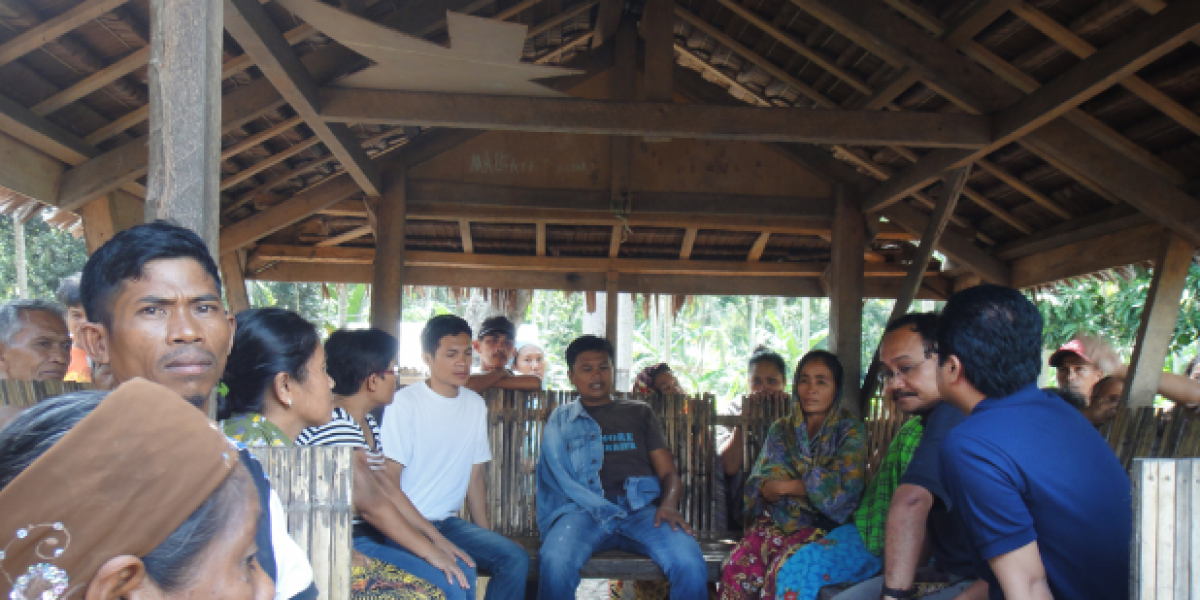Praying with Refugees in the Philippines
01 October 2012|Bambang A. Sipayung S..J Regional Director — Jesuit Refugee Service Asia Pacific

(Guindulungan, Philippines) October 1, 2012 — The southern Philippines has been ravaged by political violence since 2008. Jesuit Refugee Service supports internally displaced persons (IDPs) in their journey to become self-sufficient, and manages programs to strengthen peace building between communities in Guindulungan and Datu Piang municipalities.
While visiting the Tambungan reception centre for displaced persons, the local barangay, or village chief, chaired our meeting with people who had fled fighting.
The one-armed barangay of Kalumamis town told us he is worried about the ability of IDPs to put food on the table. Dwindling humanitarian aid and on-going conflict pose challenges for their livelihoods. He understands the only real solution is to end the violence.
“What we need is a lasting peace here in the southern Philippines. If we have that, you just leave the rest of the needs to us because we can take care of it. We do not want to be dependent on assistance,” said the barangay.
Most of the million people displaced by fighting between Moro separatists and government troops in 2008 have returned home. Yet, an estimated 330 civilians from Kalumamis and Guindulungan towns in the southern Philippines still live in the Guindulungan evacuation centre.
In addition, despite the outbreak of renewed fighting last August between government troops and the Bangsomoro Islamic Freedom Fighters, assistance from non-governmental organizations to affected communities has declined during the last four years.
In the southern Philippines, peace is often discussed, agreed upon, and then broken. The area has witnessed religious, political, social, and cultural intolerance that tears at the fabric of society to create violence. The peace of many villages has been destroyed, forcing IDPs to flee for their lives to safer areas.
The image of the one-armed barangay chief and his desire for durable peace springs to mind; something that is of utmost importance for displaced people. However, seems to be forgotten from the list. In the case of the southern Philippines, it fails time and time again.
The repeated pattern of violence in a place broken by war carries the risk that people will lose their hope and faith in reconciliation. Peace is seen by pessimists as a utopia that is unrealisable, at least not in this world. Yet, the chief’s words are a strong reminder that humanity’s innate hope for peace is unbreakable. It is this hope that allows other values, such as self-reliance, hard work, and joy, to flourish.


